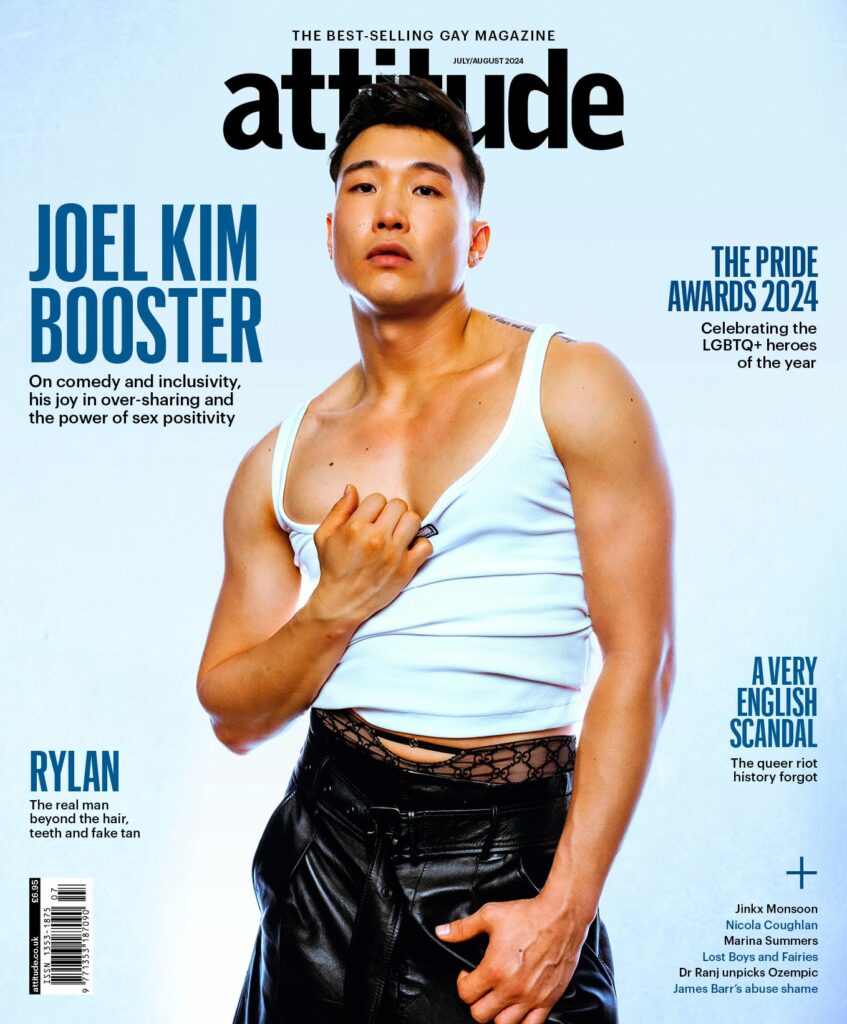Indigenous Australian drag queen Ben Graetz: ‘My heritage has always been a source of strength’
Exclusive: "By embracing the diversity and resilience of our First Nations LGBTQIA+ community, Australia has an opportunity to lead the world in healing and progress," the performer tells Attitude
By Dale Fox
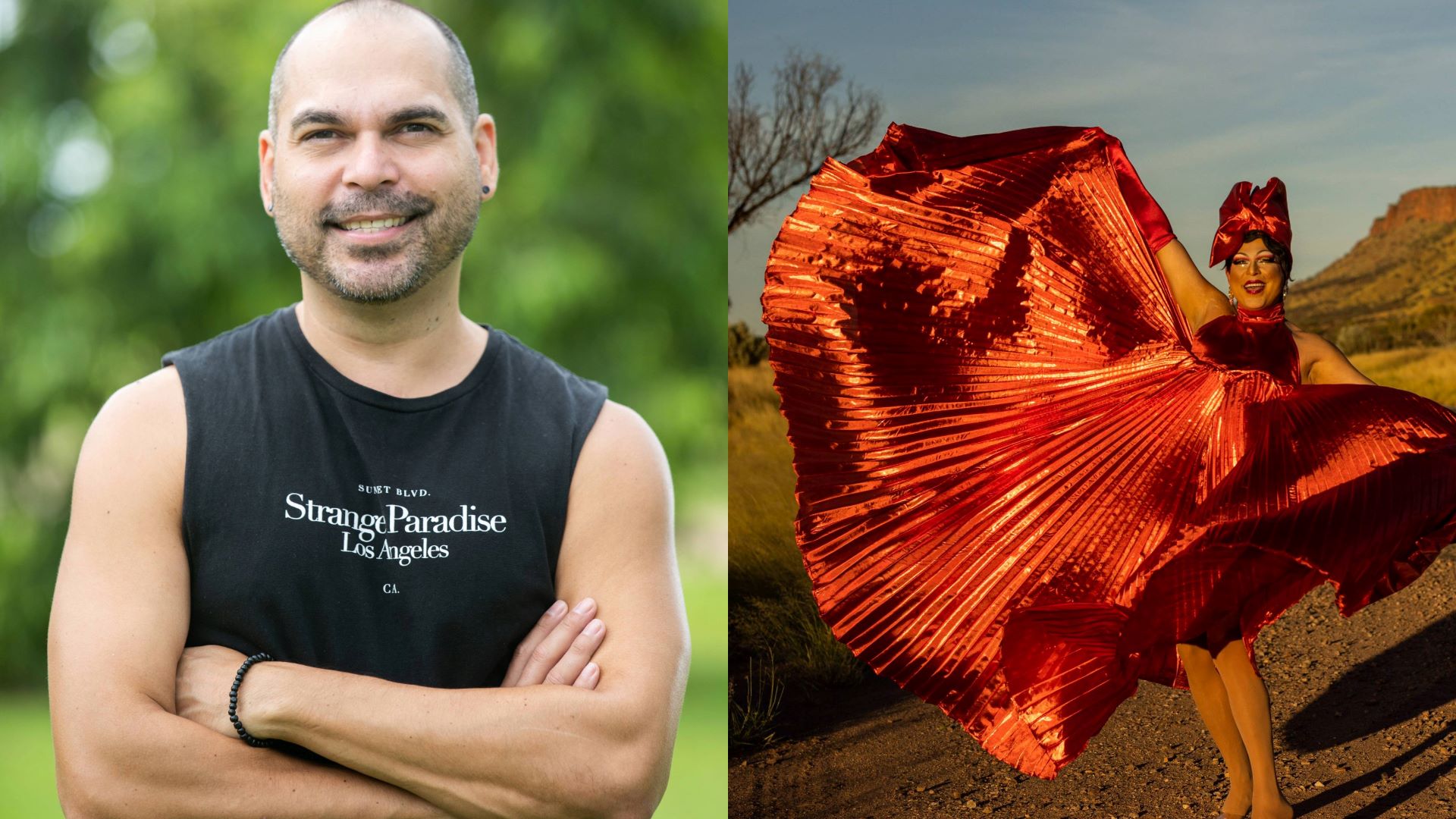
As a teen, Ben Graetz felt compelled to move to the bright lights of Sydney, where his drag persona Miss Ellaneous was born. Through this platform, he hopes to help fellow queer Indigenous Australians, as both a performer and as co-creative director of Sydney WorldPride in 2023.
Here, Ben chats with Attitude’s Dale Fox about how his daughter is being raised to take pride in her heritage, and why Australia has the chance to lead the world in “healing and progress” among its First Nations LGBTQIA+ community,
Growing up Indigenous and queer in Darwin, I always felt different. As a young kid interested in the arts rather than sports, I was teased for being ‘girly’ or a ‘sissy’. To my father, being gay meant a life of loneliness, violence and tragedy. So, I ran away at 17 to pursue my dreams, not returning home for 16 years.
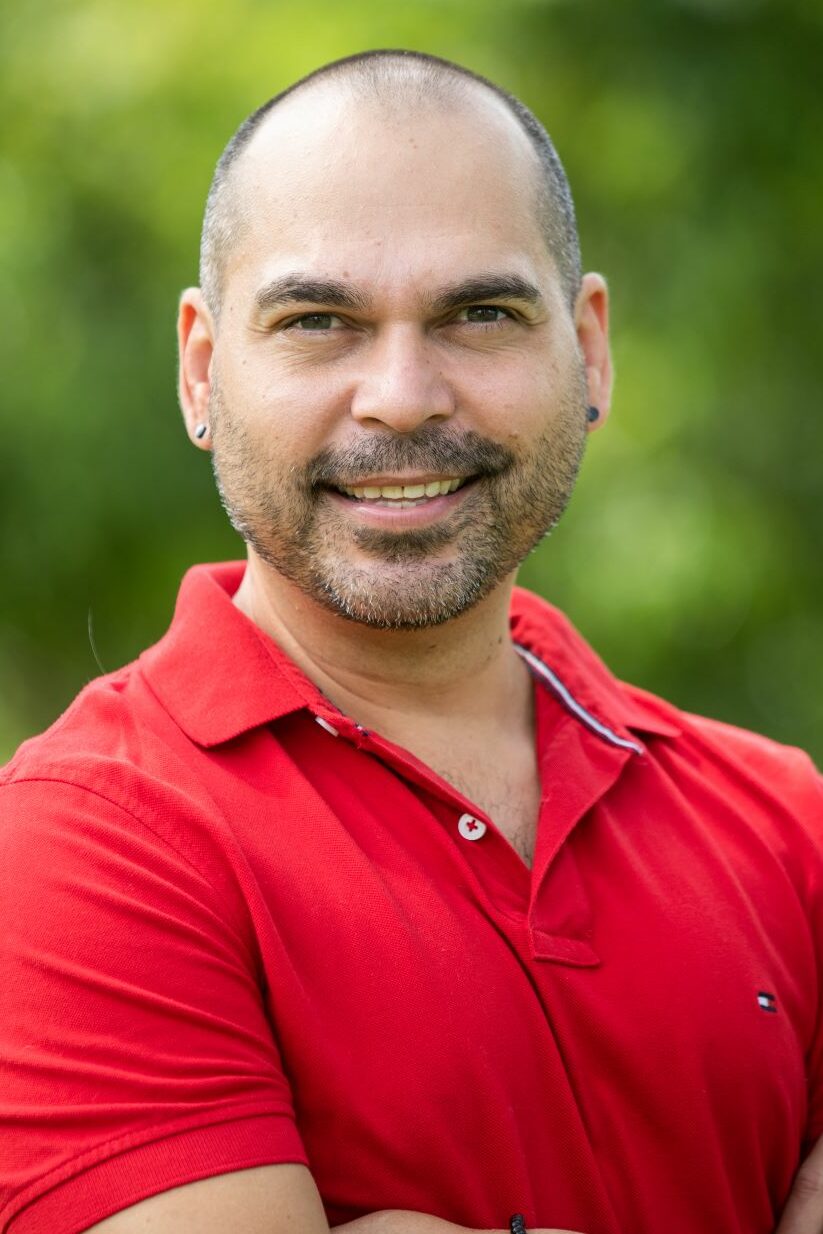
Getting into Sydney’s NIDA, Australia’s top drama school, was a turning point. Living in Sydney, I fell in love with the drag scene and decided to pursue drag myself, becoming Miss Ellaneous. Doing character work at acting school collided beautifully with my exploration of sexuality and admiration for Sydney’s drag stars.
“Dad has grown to embrace me for who I am”
Coming out to my family was a journey. Telling Mum over the phone after Mardi Gras one year was a mistake. She didn’t know how to process it, especially when I sprang it on her late at night. It took several attempts over seven years before I found the courage to tell Dad. To my surprise, he said he loved me and always would. I realised his reluctance came from a desire to protect me from the challenges queer people faced. Since then, as I’ve built a family with my husband Dion and helped raise my daughter Leila with her two mums, Dad has grown to embrace me for who I am.
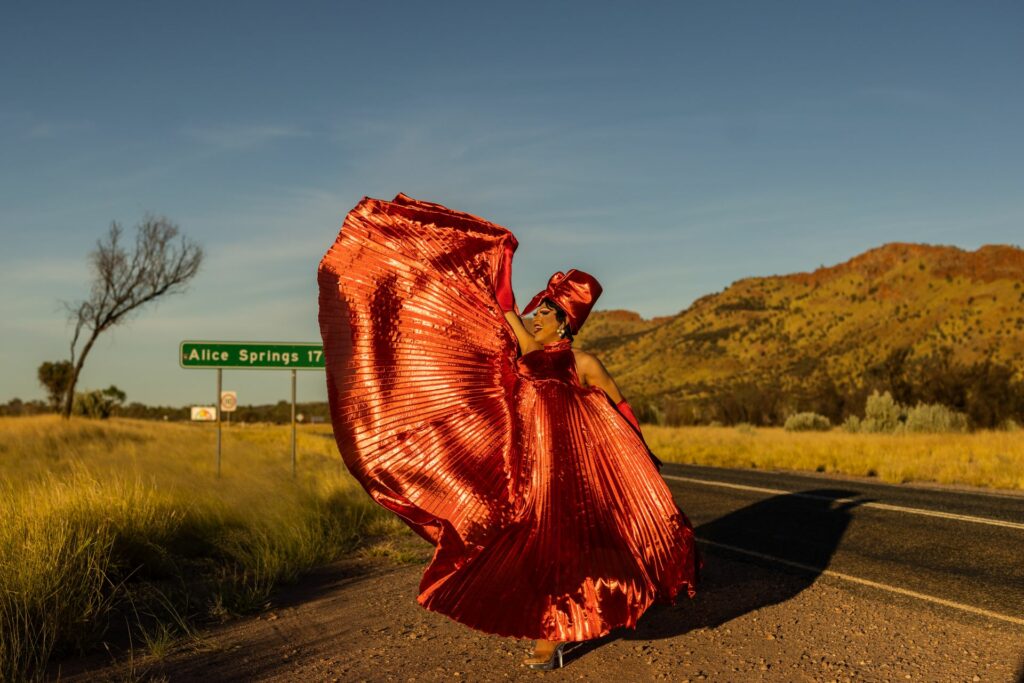
My Aboriginal and Torres Strait Islander heritage has always been a source of strength, even when the queer part of my identity brought challenges. Mum’s side of the family, with roots in Cobourg Arnhem Land, Daly River, and the Torres Strait Islands, filled my childhood with singing, stories and cultural pride. In contrast, my non-Indigenous father’s side, influenced more by Lutheranism, took longer to accept my sexuality.
“Sistergirls and Brotherboys — our trans community — have always been part of who we are”
Simply existing as a queer, Aboriginal and Torres Strait Islander drag queen in this country makes a political statement. Through my drag, whether impersonating Tina Turner or playing a ‘bogan’ [a lower-class stereotype] character, I aim to challenge assumptions, protest injustice and inspire my community.
Our First Nations culture has a long history of respecting gender diversity. Sistergirls and Brotherboys — our trans community — have always been part of who we are. Colonisation tried to erase that — there’s no pre-colonial evidence of intolerance towards queer Indigenous people in our artwork or stories. To the contrary, celebrating the feminine and masculine spirit in everyone seems to be an enduring part of our 60,000-year-old culture.
“Raising my daughter to take pride in her Aboriginality is a priority”
Raising my daughter to take pride in her Aboriginality is a priority for her mums — Gen and Lisa — and me. Like many Indigenous Australians, Leila has a rich multicultural background to embrace, including her Scottish and Italian heritage on Lisa’s side. Imparting a secure sense of identity and belonging is one of the most important gifts we can give her.
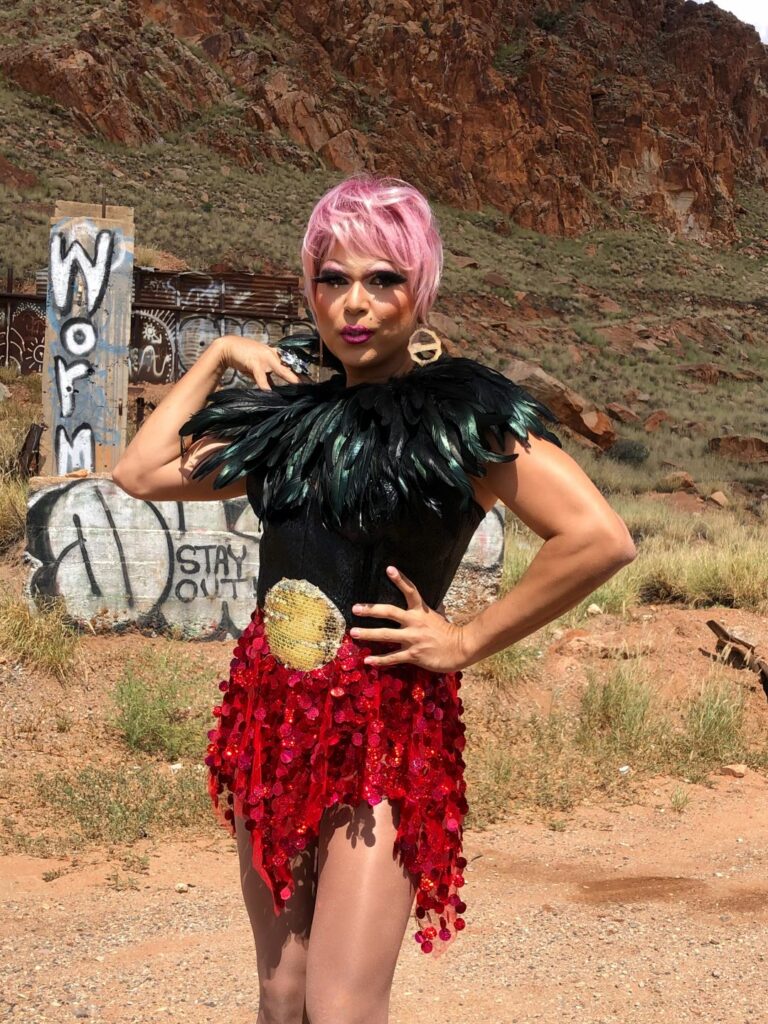
My hopes for Australia’s future are founded on truth-telling about our history, led by First Nations voices. With incarceration, poor health and suicide affecting Indigenous people at crisis levels, it’s clear the system is broken. Returning decision-making power to Aboriginal and Torres Strait Islander communities is essential. While I’m encouraged to see treaty negotiations happening, we have a long way to go in addressing injustice and intergenerational trauma.
“Australia has an opportunity to lead the world in healing and progress”
I’m heartened by the increasing visibility of queer Indigenous artists like Electric Fields, who represented Australia at Eurovision this year. My work as co-creative director of Sydney WorldPride in 2023 also aimed to celebrate Aboriginal and Torres Strait Islander stories on the global stage. By embracing the diversity and resilience of our First Nations LGBTQIA+ community, Australia has an opportunity to lead the world in healing and progress.
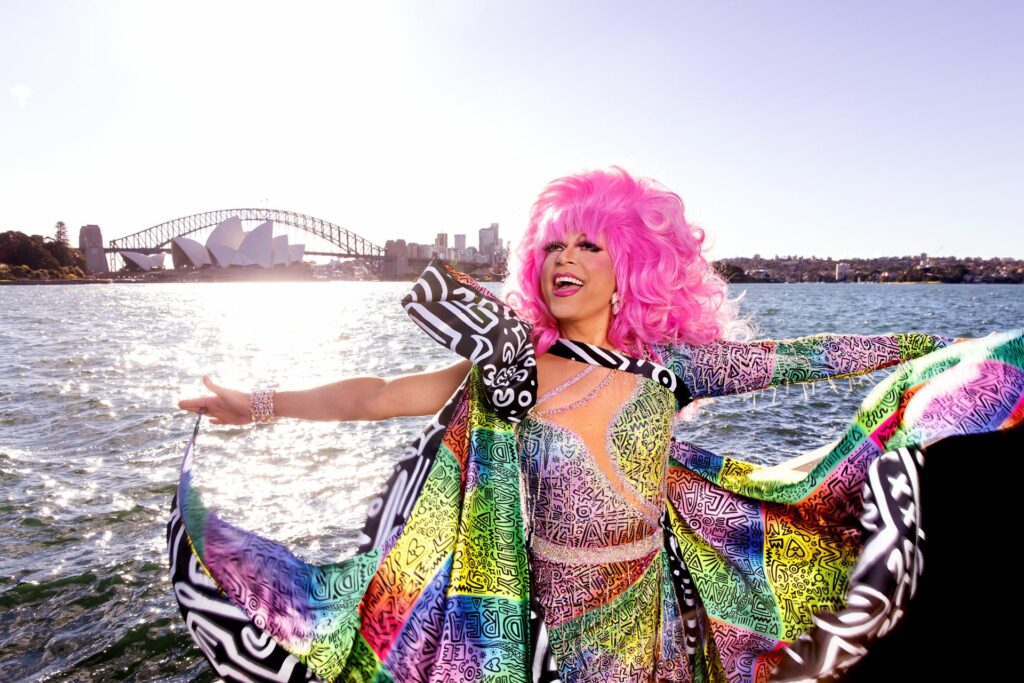
To any young Aboriginal queer people growing up in Darwin today, I want to say: you are loved, your culture is your strength, and your pride is powerful. Embrace the journey that lies ahead. Know that your Sistergirls, Brotherboys and queer elders are with you every step of the way. And together, we’re weaving a future full of hope, justice and love.
This feature appears in Issue 359 of Attitude magazine, which is available to order online here and alongside 15 years of back issues on the free Attitude app.
